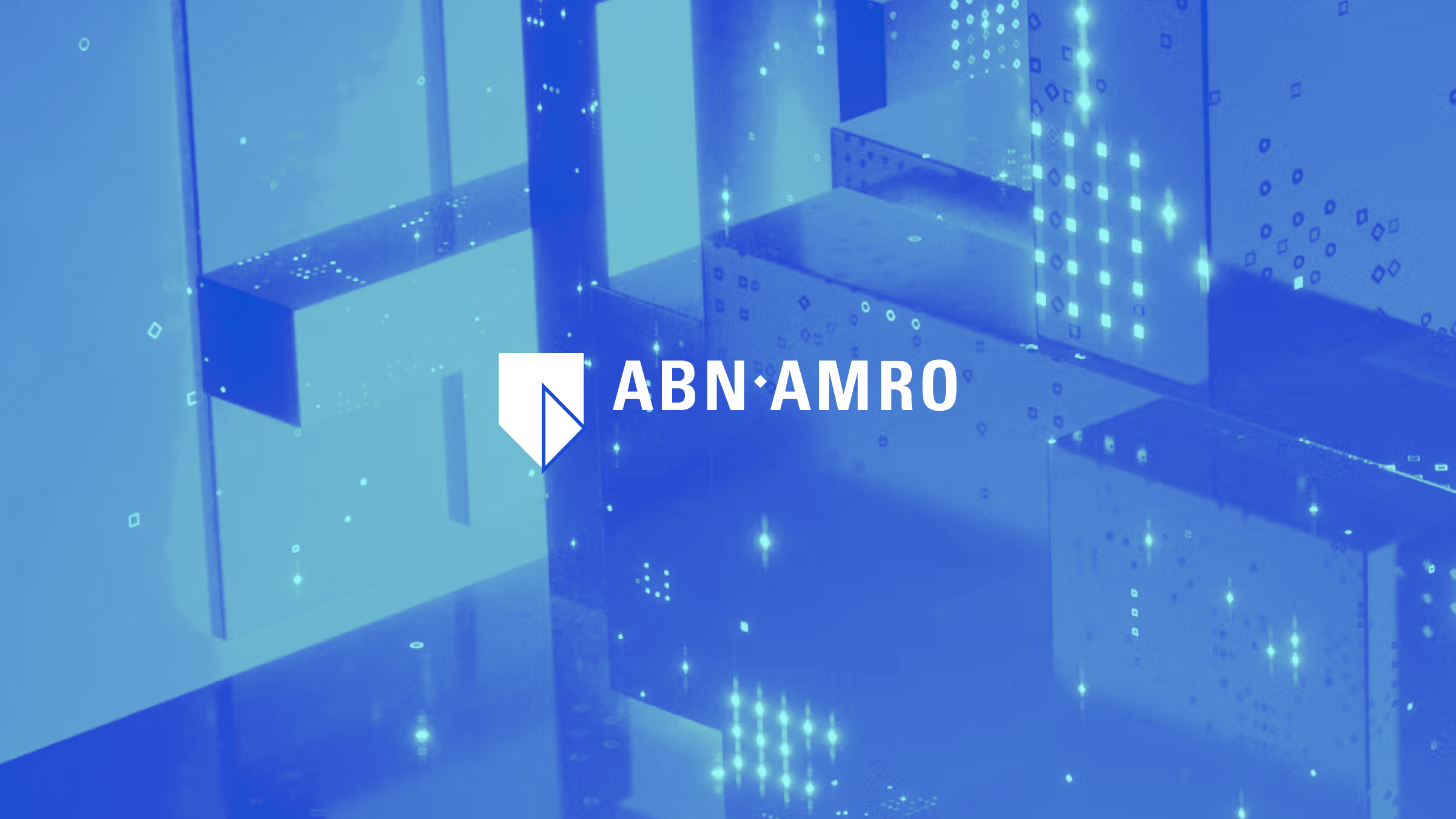Eva Maria Molendijk
My name is Eva Maria Molendijk. I am responsible for product strategy, product management, and regulation within global markets at ABN AMRO.
ABN AMRO is a Dutch bank which is active in Northwest Europe that services retail, wealth, and corporate banking clients. ABN AMRO’s strategy is to be a personal bank in a digital age, and we're focused on contributing to clients and society by providing relevant financial products. We also invest in digital and sustainable solutions through strong client relationships.
The first digital bond transaction we did was actually part of the European Investment Bank bonds issuance. We bought on the secondary markets, held onto it for some time, and then sold it through the blockchain. So, that was our first exposure. In addition to that, we wanted to also make sure that we developed some pilots with clients – that is our strategy, to do this together with clients. So far, we've done two deals with clients: one with APOC, a circular company focusing on refurbishing airplane parts, and, last year, with Vesdata, who was looking for green financing for a new project.
We chose to start with a digital bond, basically driven by market developments. We saw the first developments in the markets all being digital bonds. In addition to that, we also looked at regulation and how that is impacting us. The Capital Markets Union developments in Europe were an inspiration for us as well. The aim of the Capital Markets Union is to make capital markets more accessible to retail investors, and we believe that tokenized securities and digital assets could be a way to do so.
There were multiple problems that we wanted to solve. First is to remain relevant for our clients, and we need to do this by investing in digital solutions, really understanding the market developments and being part of it. Also, we are looking for more efficiencies in the value chain. This digital technology can also help us reduce costs or make settlement times faster.
Martijn Siebrand
My name is Martijn Siebrand. I work for ABN AMRO in the team of strategy innovation on digital assets. I'm the initiative lead on tokenization.
ABN AMRO’s strategy is to become a digital bank. To do that, we have to keep pace with the market, by looking at new technology developments that we can leverage to create new value for our clients. We think that the digital economy brings opportunities to deliver traditional assets in a new way.
We have worked on some tokenization projects ourselves with our traditional setup, like with HSMs. However, we decided that to move the innovation meaningfully forward, we wanted to work with partners, specifically where we were working with a public permissioned blockchain.
If you look at Fireblocks and the ease of connecting with it, that was, for us, an important part of making a decision to work with Fireblocks as a partner.
We were looking for a provider that could help us understand the digital markets, and also, develop a bit of this market. This technology, the blockchain, its first use cases were mainly around crypto, but are talking about traditional financial assets here. So, this is a different use case and also different capabilities that we need from our service providers. Above all, whatever we built had to adhere to what we are well known for: delivering safe solutions that are easy to use for all our types of investors. The solution we were looking for needed to be scalable, because we’re working in global markets, and have high volumes of transactions and deals.
Part of scaling the solution is building and engaging an ecosystem. We have plans to leverage the network to connect with counterparties and establish ABN AMRO in the digital asset space and grow that business.
It comes down to safety, skill, network, and support. We made a decision to go for Fireblocks because it's very easy to work with, but also secure due to all kinds of different measures. We also see that the proposition Fireblocks offers is expanding, not only on the custody side, but also to deliver some other parts of the value chain that we are looking for.
As of today, we work with Fireblocks for purely for the digital asset custody, which we have integrated as much as possible in our traditional business. This means that our clients, either from wealth or from the institutional side, can look at their assets just via the traditional ways. And then in the back, we have the connection with Fireblocks to provide them a setup that they are familiar with to get also the trust and the feeling that this is just a traditional asset. Fireblocks helps also to develop those kinds of solutions for ABN AMRO; most useful is the fact that we can connect this very easily to our existing systems, and we also can scale it for other types of clients or numbers of deals.
While we have been successful with issuance of tokenized bonds and the custody of digital assets, we are eager to move the innovation even further with a cash-on-chain solution so that we can do atomic settlement, for example. We would like to add some more investors to some of the trades, and for that, we also need secondary markets, because this is really important for our institutional investors mainly.
We are looking at the asset servicing side. We would like to include data to digital issuance that adds value for the investor, for the clients, etc. For that, we are mainly looking at ESG data to connect impact metrics, via wallets, directly to investors so that they have all the most pertinent investment information in a single view. With that spectrum, we expect that we will be at par with the traditional value chain, and then we can also see what the cost efficiencies are, withwhom do we need to connect, etc.
Digitalization is ongoing, it's not going away. We are embracing it by looking at how we can bring different aspects of the value chain on-chain and bring it to par with traditional wealth banking.

